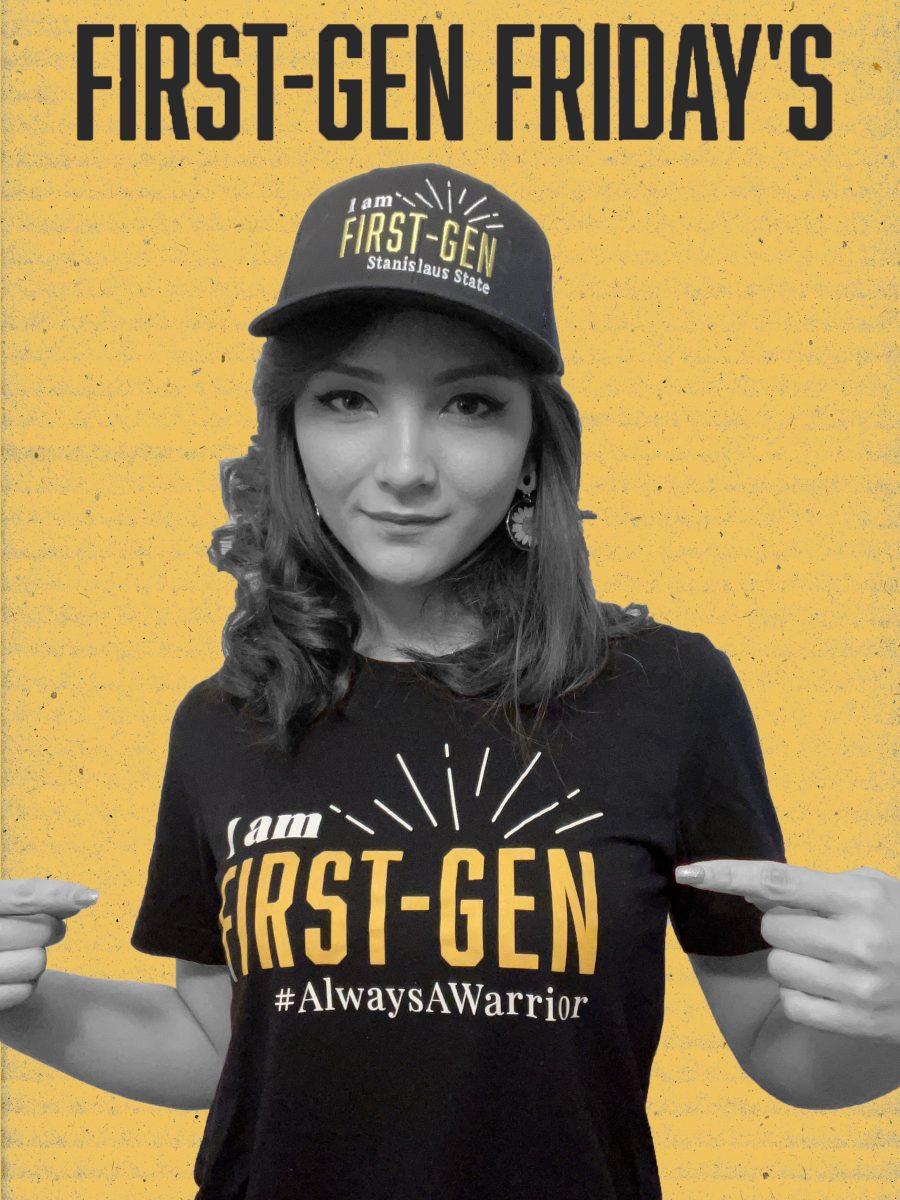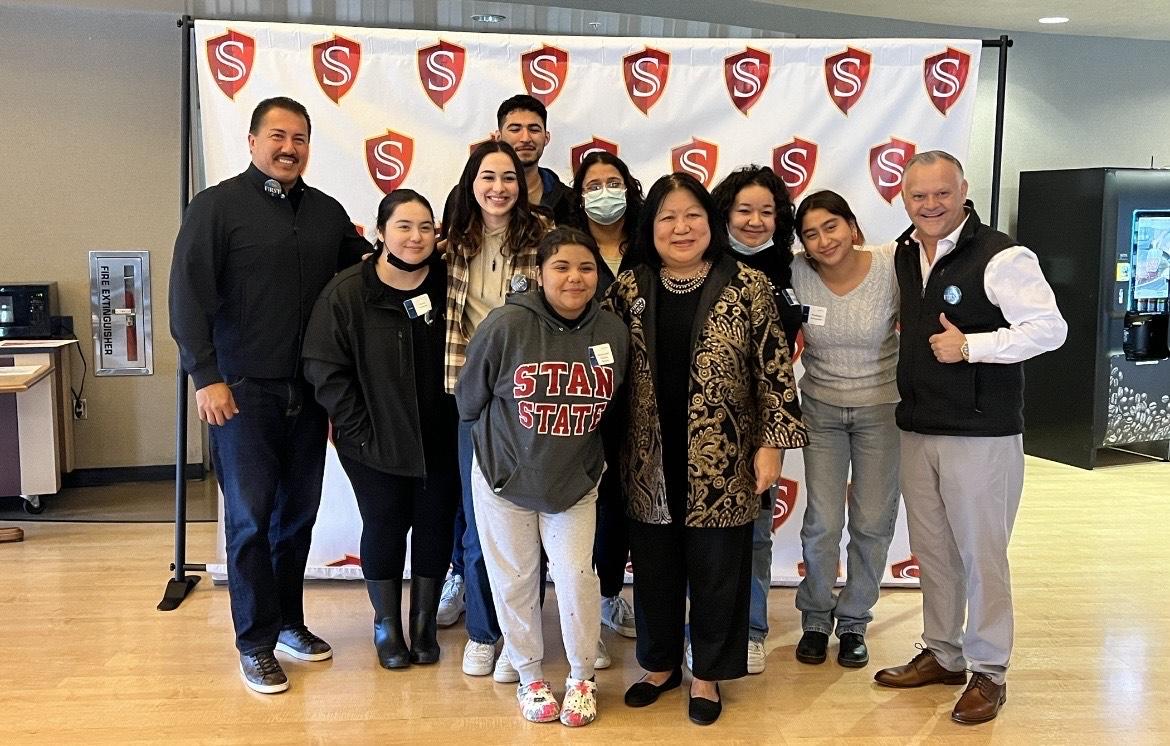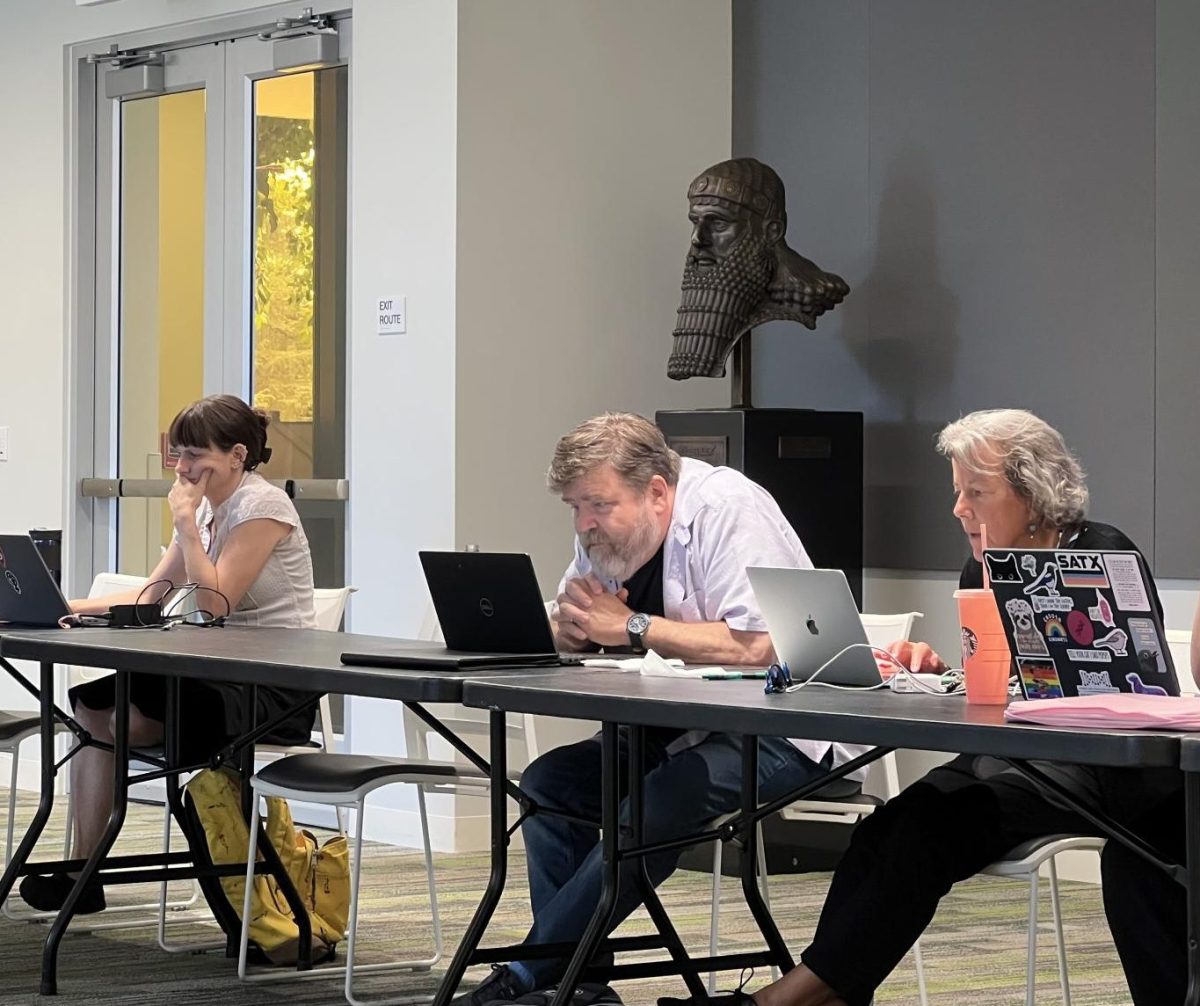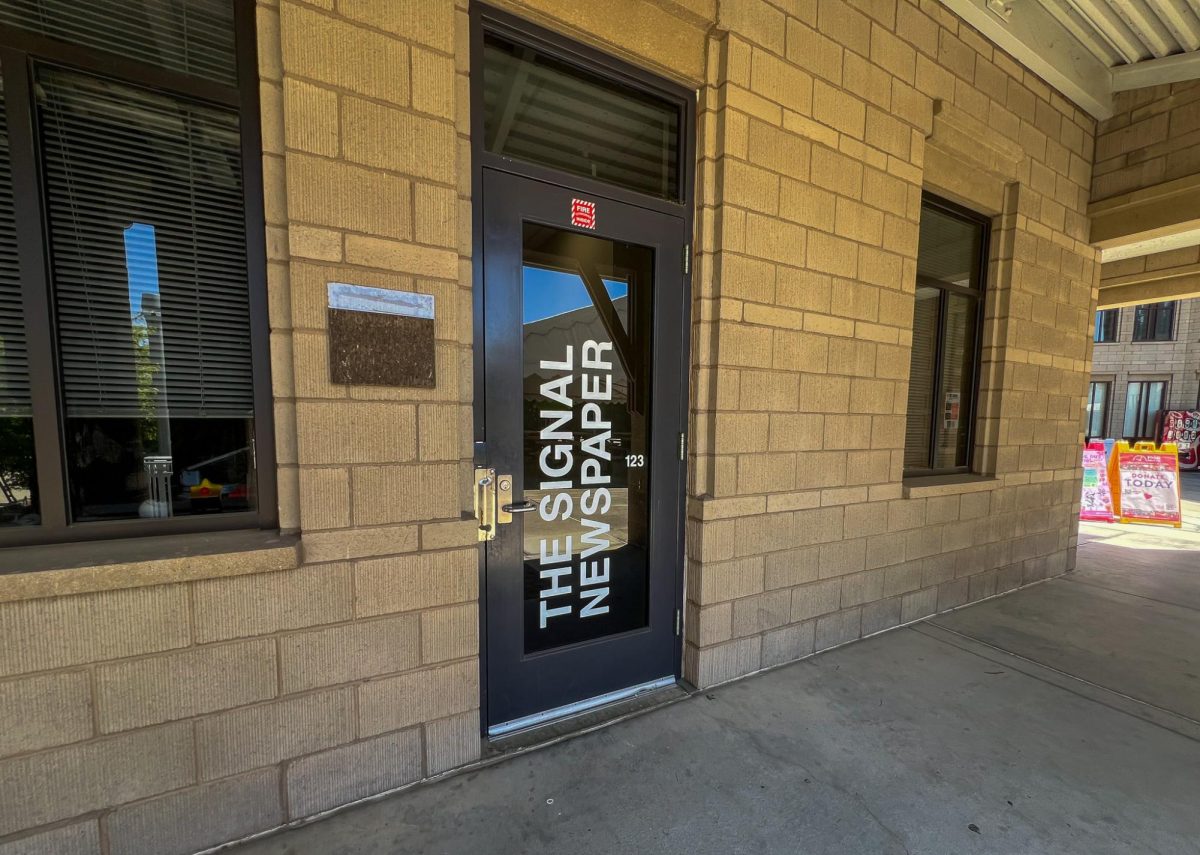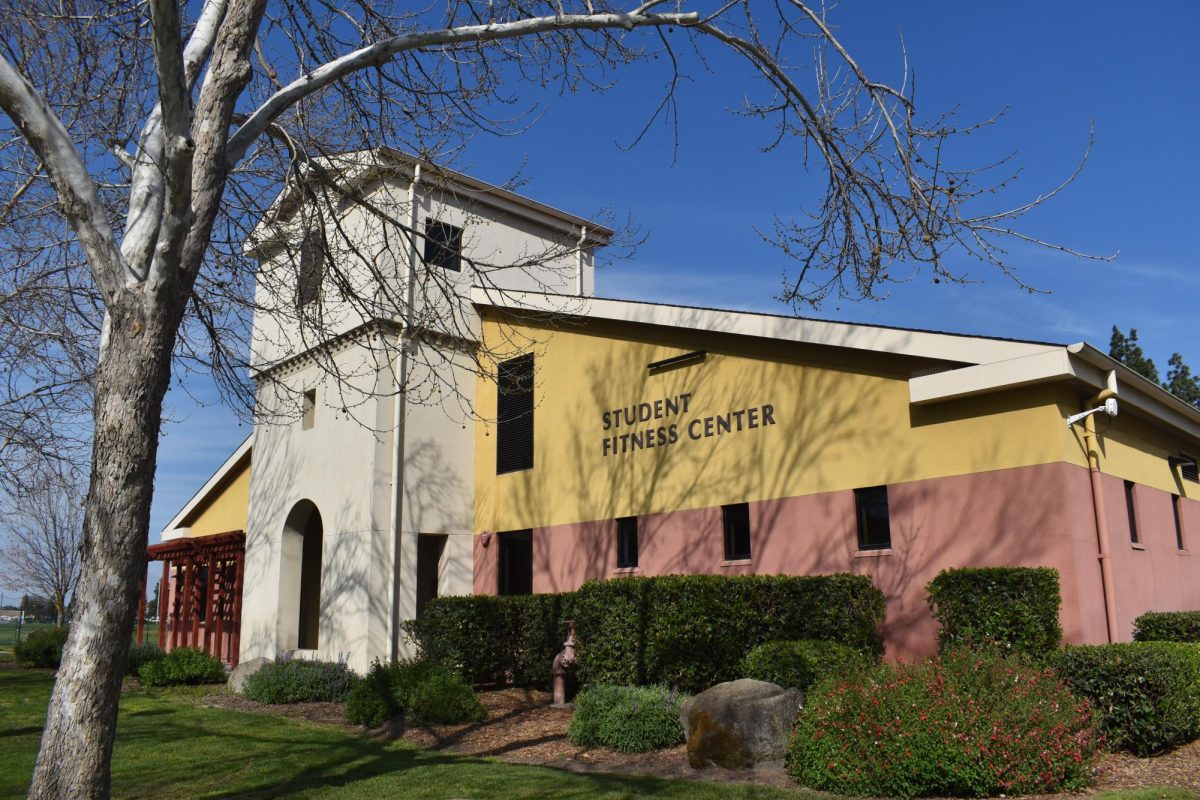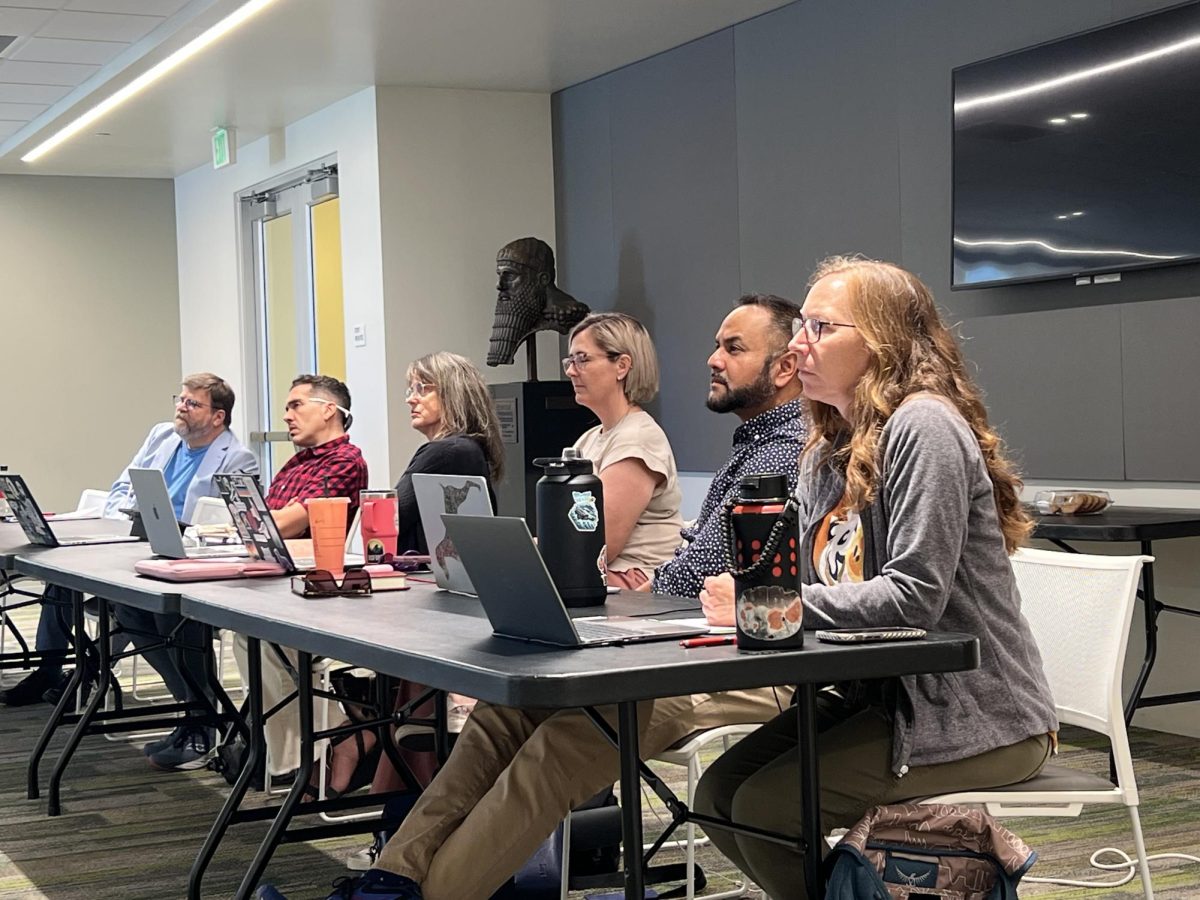Stanislaus State University’s population is 73% first-generation students. First-Gen Fridays is a workshop series taking place on select Fridays that addresses the needs of a large first-generation student population by covering topics such as financial wellness, organization, mental health, and networking.
First-Gen Fridays, hosted by Academic Advisor Lissett De La Cruz, is an opportunity for first-gen and non-first-gen students to socialize and develop different skills.
She learned that she had to define first-gen when she wrote up the request to propose the series to administration.
“I tried to figure out what we decided as a whole CSU and what I found was; as long as your parents did not graduate from a four year institution in the United States, you are a first-generation,” said De La Cruz
According to De La Cruz, First-Gen Fridays helped with building social capital throughout higher education throughout COVID.
De La Cruz defines social capital as a web of networks created throughout life and built upon.
Social capital differs from networking, which is the interaction itself. Social capital is what is gained from networking.
Students have their own social capital before college from places in their community such as high school or church.
“Sometimes it’s not what you know, it’s who you know,” said De La Cruz, who emphasized building social capital as one of the most important things to get out of being an undergraduate.
In a survey conducted by De La Cruz, students shared their feelings about how First-Gen Fridays have helped them.
Students have stated how it helped them persevere to graduate, and to connect and mentor other students.
In addition, they have stated that First-Gen Fridays make them feel like they belong, and that there’s a safe space for them.
De La Cruz tries to evolve the workshops to help students in areas they are interested in, such as financial wellness, credit management, technology, how to stay organized, and how to budget.
Additionally, students like to hear other people’s anecdotes from those in their career.
For students, its impact evolves throughout the process of attending the workshops. After a few sessions, students start to realize it’s a community they are building.
Students start recognizing each other outside of the workshops, which creates opportunities for future relationships, careers, and jobs.
Noreen Singh (Freshman, Psychology) discussed how she discovered and how she participates in the event.
She is also a first-gen student, and discovered First-Gen Fridays during online New Student Orientation, where De La Cruz spoke about the event in a breakout room.
This, in addition to emails and following them on social media, made her more aware of the event.
According to Singh, the biggest struggle for first-gen students is navigating college without experience of how college works.
Parents don’t understand how students will struggle to balance rigorous coursework and spending time with family.
One workshop Singh said left an impact on her was about a Latina woman’s experience going into PhD programs, which made her realize that the color of her skin mattered.
“I’m not alone in these struggles. These things still happen to first-gen students of color, especially females, and nobody sees that. It’s hard to keep going when so many doors get shut along the way,” Singh said about the workshop.
Nahui Gonzanlez Millan (Senior, Psychology and Child Development) is currently in a graduate program and is another first-gen student who attends the workshops.
She discovered the workshop when first transferring, and also learned about it through New Student Orientation and emails.
Millan says there are two aspects to the struggle of being first-gen.
One is the financial side; first-gen students’ parents are most likely working class or coming from low paying jobs and resources are less available.
The second is that there is less guidance, and can be much different than what is received in a high school setting.
Millan recalls workshops where graduate students would come in to talk about their experience, workshops about time management, and workshops for financial aid.
One of the most recent workshops was about Imposter Syndrome and took place on February 10th, 2023 at 11 a.m. The workshop for Imposter Syndrome was put on by Psychological Services (CAPS) to present coping mechanisms for people who feel they do not belong or are not enough.
Regarding the Imposter Syndrome workshop, Millan said it’s hard to go to college having to work harder than everyone else, and how that makes students feel like they don’t deserve to be here.
She thinks imposter syndrome is real in first-gen students due to the lack of support, and it’s especially more evident going into higher education.
“You have a family that is very unfamiliar with what you’re going through as a college student. They may recognize that you’re struggling but they don’t know why you’re struggling,” Millan stated about the workshop.
Millan added, “Now that I’m in college and I have so many peers that do amazing wonderful things that it is easy to compare yourself to other people and it’s that feeling of I shouldn’t belong.”
De La Cruz has a different take on imposter syndrome.
De La Cruz is part of New Student Orientation and during it, she talks about how first-generation students may come even more prepared than other students due to having to fill out many forms and applications on their own.
“You’re here because you got yourself here. Nobody else got you here but yourself. And also no one else is gonna graduate for you. No one’s gonna put in the work for you. You have to put in the work to graduate too,” said De La Cruz.
Initially in 2019, only if people were first-gen students they could attend the workshops, but after COVID, De La Cruz decided to open it up to all students.
De La Cruz used to do workshops in person.
In a whole year she had 50 students attend.
Last year, she had almost 500 students via Zoom. Zoom amplified attendance because of COVID. It’s more accessible to Stockton students and to those who commute.
De La Cruz did a survey where students said they wanted more hybrid workshops so she’s planning on establishing that. A first-gen mixer will ideally be coming up soon.
Categories:
First-Gen Fridays Promote Networking, Mental Health, and Personal Growth
Contributing Writer Kristina Solomita
•
April 28, 2023
0
Donate to Signal
Your donation will support the student journalists of California State University, Stanislaus. Your contribution will allow us to purchase equipment and cover our annual website hosting costs.
More to Discover

